MercoPress. South Atlantic News Agency
Stories for April 8th 2011
-
Friday, April 8th 2011 - 23:52 UTC
Paul McCartney plays Chile: All You Need Is Love, but US$2,250 would help

British music icon Paul McCartney has confirmed that he will play the Estadio Nacional in Santiago on May 11 this year. It will be the star’s second show in Chile; he played the same venue in December 1993.
-
Friday, April 8th 2011 - 23:30 UTC
Brazil’s Real at a new high; investors brush aside government measures
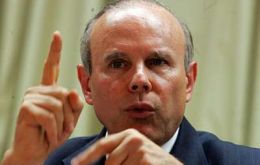
Brazil’s currency climbed again on Friday trading at its best levels in more than two years, as investors brushed aside another Brazilian government measure to limit credit consumption in an attempt to tame inflation.
-
Friday, April 8th 2011 - 23:26 UTC
Argentina promotes meat production with subsidized loans

Argentina plans to extend the equivalent of 750 million US dollars in subsidized loans to meat producers to spur increased production of beef, chicken and pork.
-
Friday, April 8th 2011 - 23:05 UTC
Peru presidential hopefuls: “Leprosy, Yellow Fever; Alzheimer; Cirrhosis and Autism”
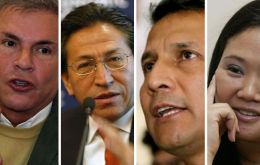
Peruvian voters appealed to clever and skilful mechanisms using the Twitter net to avoid the ban on releasing the latest public opinion polls ahead of Sunday’s April 10 presidential election.
-
Friday, April 8th 2011 - 22:51 UTC
US report on Argentina questions judicial system and campaign against the media

The US State Department released its annual report on human rights around the world and questioned the Argentine judicial system’s independence along with a series of abuses carried out by police forces including deaths and torture claims.
-
Friday, April 8th 2011 - 22:45 UTC
Peru/Mexico sign trade agreement, fist step for a regional expansion towards Asia
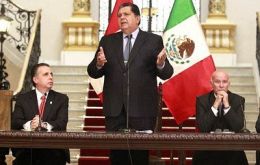
Peru and Mexico signed this week a trade agreement with the aim of jointly reaching out to Asia, an undertaking that they want Chile and Colombia to join
-
Friday, April 8th 2011 - 22:41 UTC
Chinese think-tank forecasts BRIC countries to overtake the US economy by 2015

BRIC countries (Brazil, Russia, India and China) are expected to contribute one-third of the world's GDP increase in 2015, by which time their total economy will surpass United States, according to a leading Chinese think tank.
-
Friday, April 8th 2011 - 22:10 UTC
Shell moves heavily into bio-fuels from sugar cane bagasse in Brazil

Royal Dutch Shell Plc, the world’s biggest distributor of bio-fuels, is shifting research to waste from sugar-cane farming after ending an algae project in Hawaii. Shell, Iogen Corp. and Codexis have been researching enzymes to produce cellulose ethanol from wheat stalks and sugar-cane bagasse, a sugar industry waste product.
-
Friday, April 8th 2011 - 21:54 UTC
“Naked” penguin chicks in Argentina and South Africa puzzle scientists
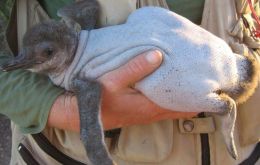
Researchers from the Wildlife Conservation Society, the University of Washington, and other groups are grappling with a wildlife mystery: Why are some penguin chicks losing their feathers?
-
Friday, April 8th 2011 - 20:08 UTC
Argentina imports’ hurdles create ‘uncertainty’ to EU/Mercosur trade negotiations
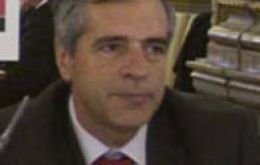
Argentina’s hurdles to imports don’t help European Union /Mercosur trade negotiations and generate “uncertainty” warned the EU head of delegation in Argentina Alfonso Diez Torres. He also criticized the “one to one” Argentine policy that forces the local assembly plants to match every import-dollar with export dollars.
